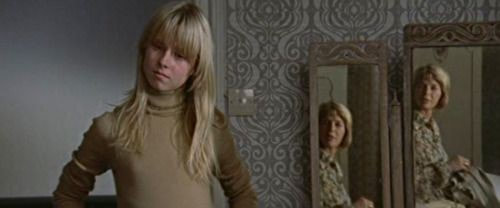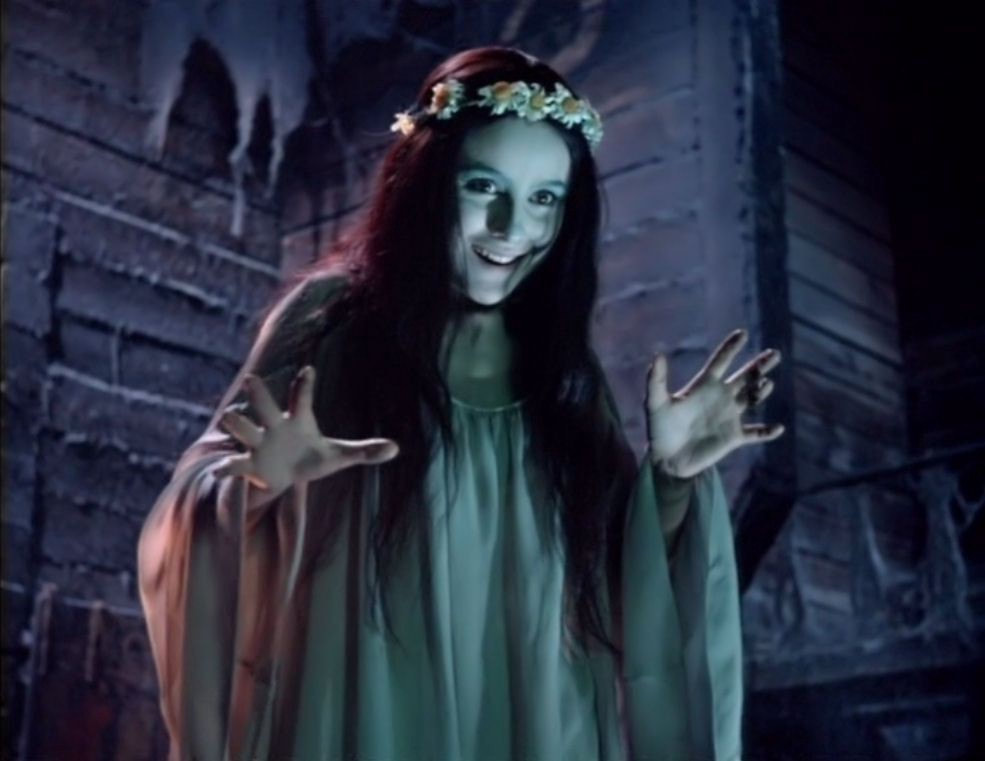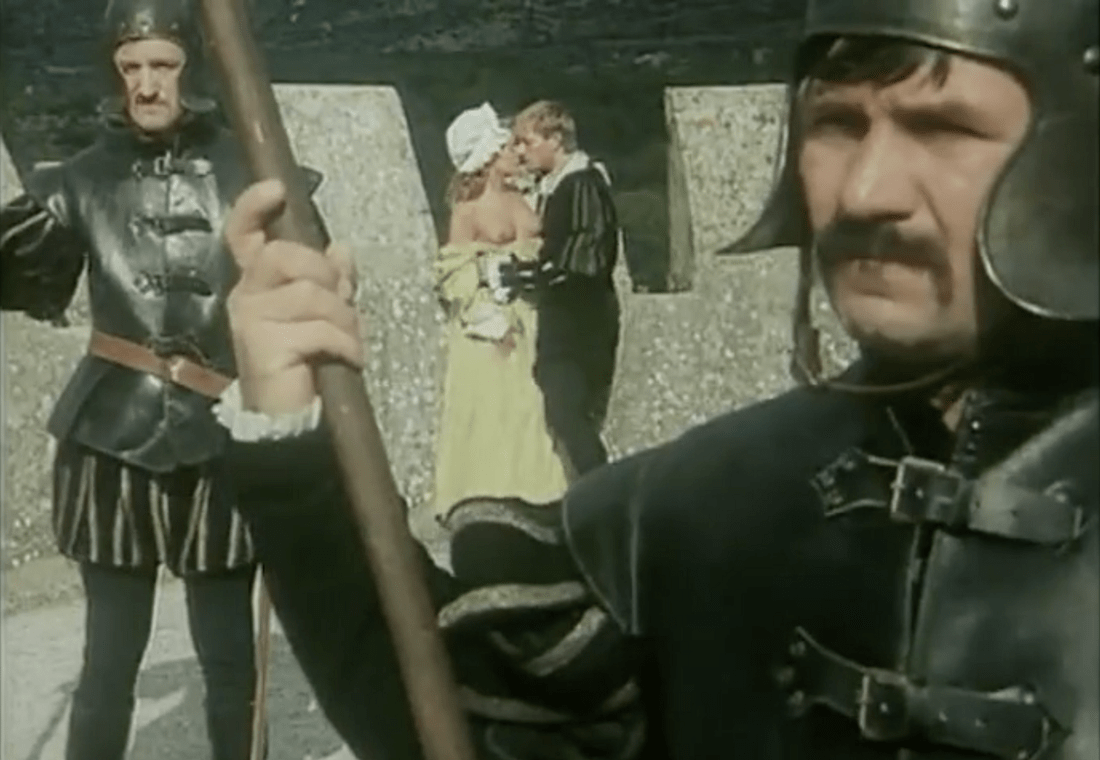
Tobe Hooper made Poltergeist in 1982. It’s an uneven film that is more entertaining than it is artful, but the choice to cast Zelda Rubinstein as the creepy, yet lovable, medium made for an unforgettable and spellbinding scene. Cinematically the scene is very plain. The camera stays tight on Zelda to capture the nuance and depth of her delivery. There are a few cutaways to close up reactions from her audience but nothing else. The scene breaks the cardinal rule of show don’t tell, but in a horror movie there are advantages to leaving the fear unseen and allowing the audience’s imagination to customize the imagery. Our imaginations know what frightens us most.
Tangina, Zelda Rubinstein’s character, is a kindly and warm, older woman from the South. She is sweet and gentle but there is a confident air about her that reads as strength. She is a small woman and has an uncanny Lynchian quality. She is both reassuring and unnerving at the same time. When she arrives on the scene she is the last hope of the family ever seeing their daughter, Carol Anne, again. They gather around Tangina desperate and rapt.
The writers for Poltergeist were, Steven Spielberg, Michael Drais, and Mark Victor. I don’t know which one penned Tangina's monologue but it is worth reproducing it in its entirety below. It avoids some of the simplistic tropes of heaven and hell and describes something more complex, more human, and far more interesting. It’s a clever bit of world-building that evokes vivid images of an impossible space.
Tangina: “There is no death. There is only a transition to a different sphere of consciousness. Carol Anne is not like those she’s with. She is a living presence in their spiritual earthbound plane. They are attracted to the one thing about her that is different from themselves — her life force. It is very strong. It gives off its own illumination. It is a light that implies life and memory of love and home and earthly pleasures, something they desperately desire but can’t have anymore. Right now, she’s the closest thing to that, and that is a terrible distraction from the real light that has finally come for them. You understand me?
These souls, who for whatever reason are not at rest, are also not aware that they have passed on. They’re not part of consciousness as we know it. They linger in a perpetual dream state, a nightmare from which they cannot awake. Inside the spectral light is salvation, a window to the next plane. They must pass through this membrane where friends are waiting to guide them to new destinies. Carol Anne must help them cross over, and she will only hear her mother’s voice. Now… hold on to yourselves.
There’s one more thing. A terrible presence is in there with her. So much rage, so much betrayal. I’ve never sensed anything like it. I don’t know what hovers over this house, but it was strong enough to punch a hole into this world and take your daughter away from you. It keeps Carol Anne very close to it and away from the spectral light. It lies to her, it tells her things only a child could understand. It has been using her to restrain the others. To her, it simply is another child. To us, it is the Beast.”

The writing is evocative but needs her motherly voice delivering it to come to full fruition. Her elocution is careful and deliberate. Her southern drawl is both homey and foreign. She is speaking as if she were speaking to children. She knows what she is describing is incomprehensible so she goes slowly, leading the audience deeper into the afterlife.
The scene is hypnotizing and by requiring us to use our imaginations it captures us. Due to Tangina’s short stature, everyone is sitting on the ground at Tangina’s feet. They all lean in and hang on her every word. We are drawn into the campfire story and coaxed into believing.
The monologue isn’t threatening until the last paragraph. More than half of what she says is almost soothing, but it’s a setup. The last three sentences are the most dreadful. Rubinstein whispers them gently and draws out the word “lies.” When she gets to the last word it’s just a breathy utterance as if she dare not say it.
Rubinstein’s odd appearance and Lynchian qualities allow her some leeway to overdramatize. She is already a strange figure and we are willing to accept that this small, psychic, southerner has a flair for the dramatic. The scene is a seduction into seeing the world through her eyes. We leave the rational, everyday world behind and follow Carol Anne into the beyond.

If you enjoyed this article click here for more
www.filmofileshideout.com/archives/anguish-half-a-great-movie



